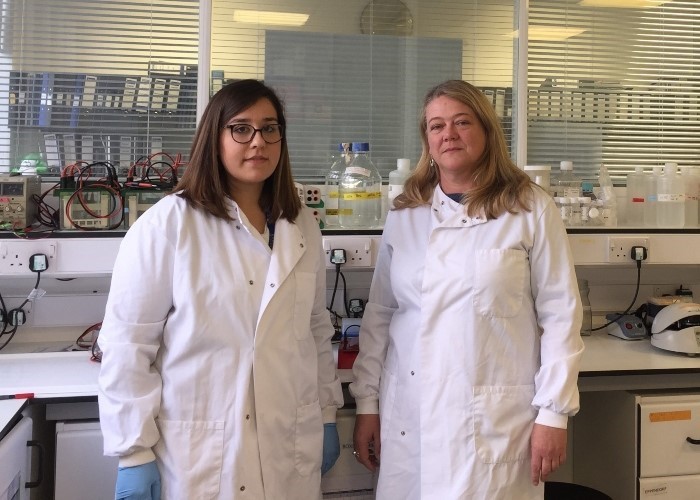To recognise International Day of Women and Girls in Science and all the amazing female scientists we work with, we spoke to Professor Judy Coulson and Valeria Marotta about their work and what inspires them.
To recognise International Day of Women and Girls in Science and all the amazing female scientists we work with, we spoke to Professor Judy Coulson and Valeria Marotta about their work.

What is a normal working day for you?
Professor Judy Coulson (JC): One of the best things about my job is that there is no normal working day! As an academic, I balance my time between research, teaching and administration - there are always new challenges to face, new people to meet, and new things to learn.
Valeria Marotta (VM): The most exciting aspect of this work is that every day is different. Every day challenges me to face new problems and find alternative ways of achieving goals. We take care of cells and then we plan experiments according to what we would like to find out. Seminars, where other scientists present their research, are an important part of our work too, as we need to be aware of the latest research.
What’s your proudest moment?
JC: Many years ago, just after I started my first position as a University lecturer, I won the British Association for Cancer Research's Young Scientist Award. These days I feel very proud when one of the researchers I mentor in my laboratory has success in their own careers.
VM: I think that my proudest moment was when I obtained my PhD position in the UK funded by Breast Cancer Now. The recognition that someone believes in you and your abilities is something that makes you feel proud; to know that the hard work and sacrifices my family and I have made was worth it.
Can you tell us about any research successes?
JC: Scientific research can be hard work and not everything that we invest time in is successful, but the excitement when we generate results that help to prove new theories is amazing. Particular moments for me include finding a way to stabilise drugs that have a similar structure to the building blocks of DNA, identifying a new protein that controls the way some lung cancers behave and finding another protein that we think helps breast cancer cells to divide and grow.
VM: I started my PhD in October, so it’s quite early for me to be talking about successes! But research isn’t just about expecting to make the greatest discovery of the century, the small advances are really important too. I have a long journey ahead of me, and I could not be more excited to see what the future has in store for me.
What inspired you to work in science?
JC: I always found biology fascinating at school, particularly how DNA encodes the proteins that in turn control a cell’s behaviour. It’s such an amazing process and I wanted to learn more about it. I think there was still a feeling that science was more of a man’s world but, being quite stubborn, that’s why I decided to choose science!
VM: I have always been fascinated by biology and how our bodies work when they’re healthy or not healthy. Cancer research is so important and I really want to play a role in helping to stop women dying from breast cancer.
Who is your inspiration?
JC: I don’t think there is one specific person who inspires me. I take inspiration from my scientific colleagues and seminars, but also from the business world (running a research lab is a bit like running a small business)! I also take inspiration from cultural experiences like travelling and art.
VM: I can easily say that it was my mum who inspired me to start my scientific career. She started to study biology at university when she was young, but after some years she got married and stopped her career. She always had a passion for the world of biology and she passed this passion on to me.
What advice would you give to those thinking of a career in science?
JC: Go for it! Studying science offers so many exciting and different opportunities that you are sure to have a stimulating and satisfying career.
VM: I have always thought that one of the most important things in life is to not regret anything that you have done. If you would like to follow a passion, go for it. This work sometimes gives you great satisfaction, although other days everything seems hard work. My advice would be to remain focused on the work that you are doing and the goals that you would like to reach. I am sure that this attitude would lead to great scientific successes in the future.
Further information about Judy and Valeria's research.
Find out more about Breast Cancer Now's funding of life-saving research into breast cancer: